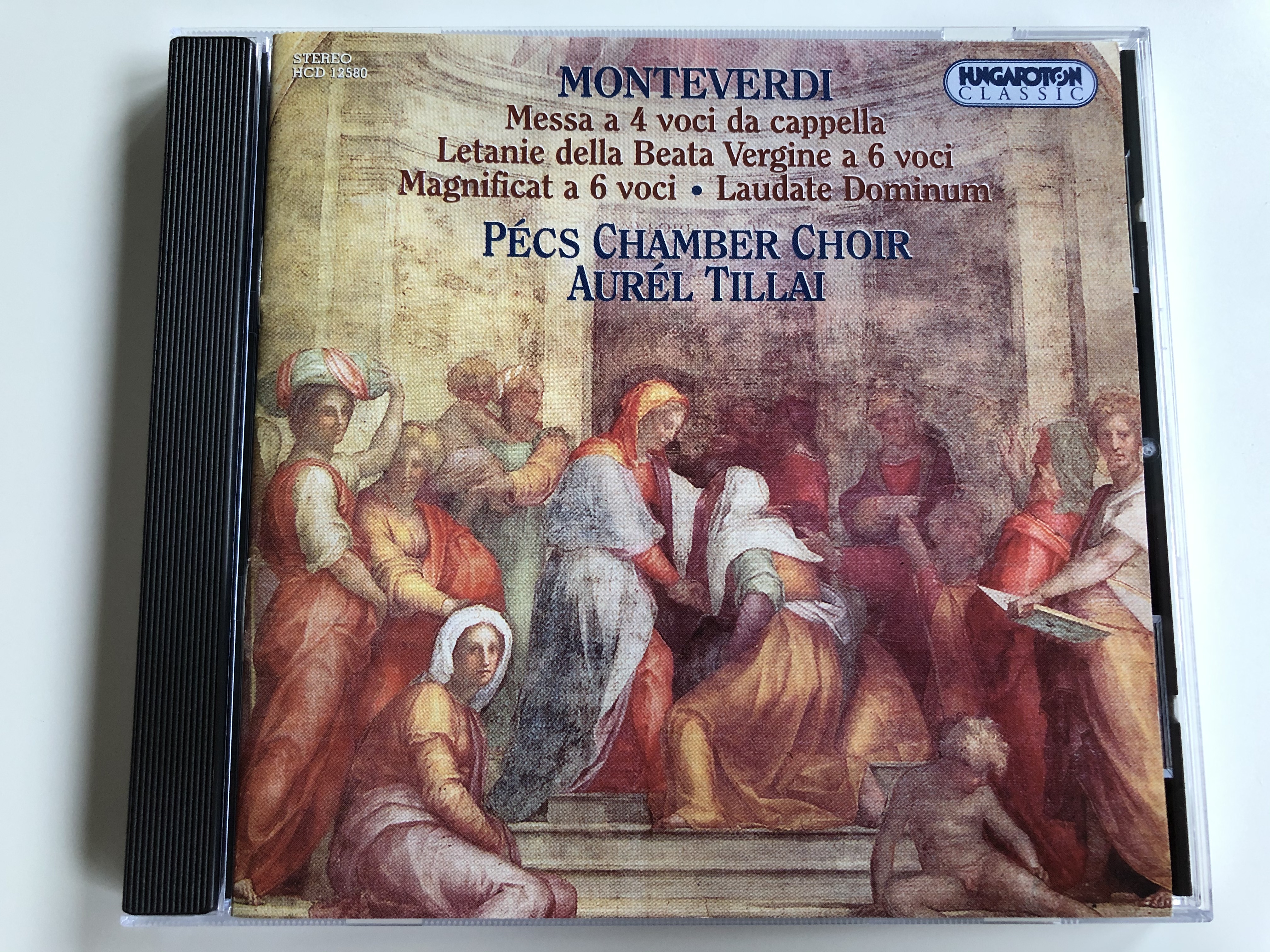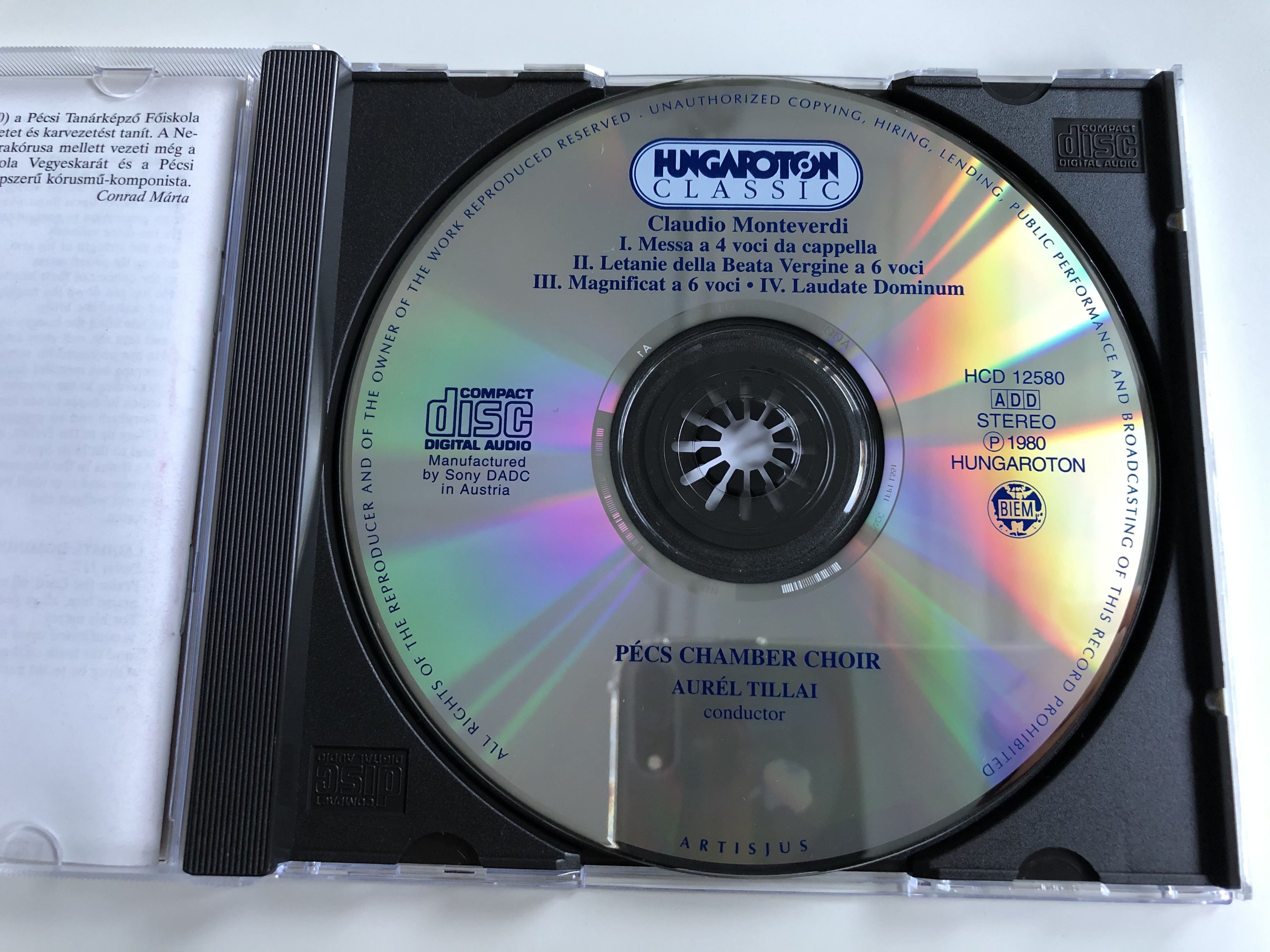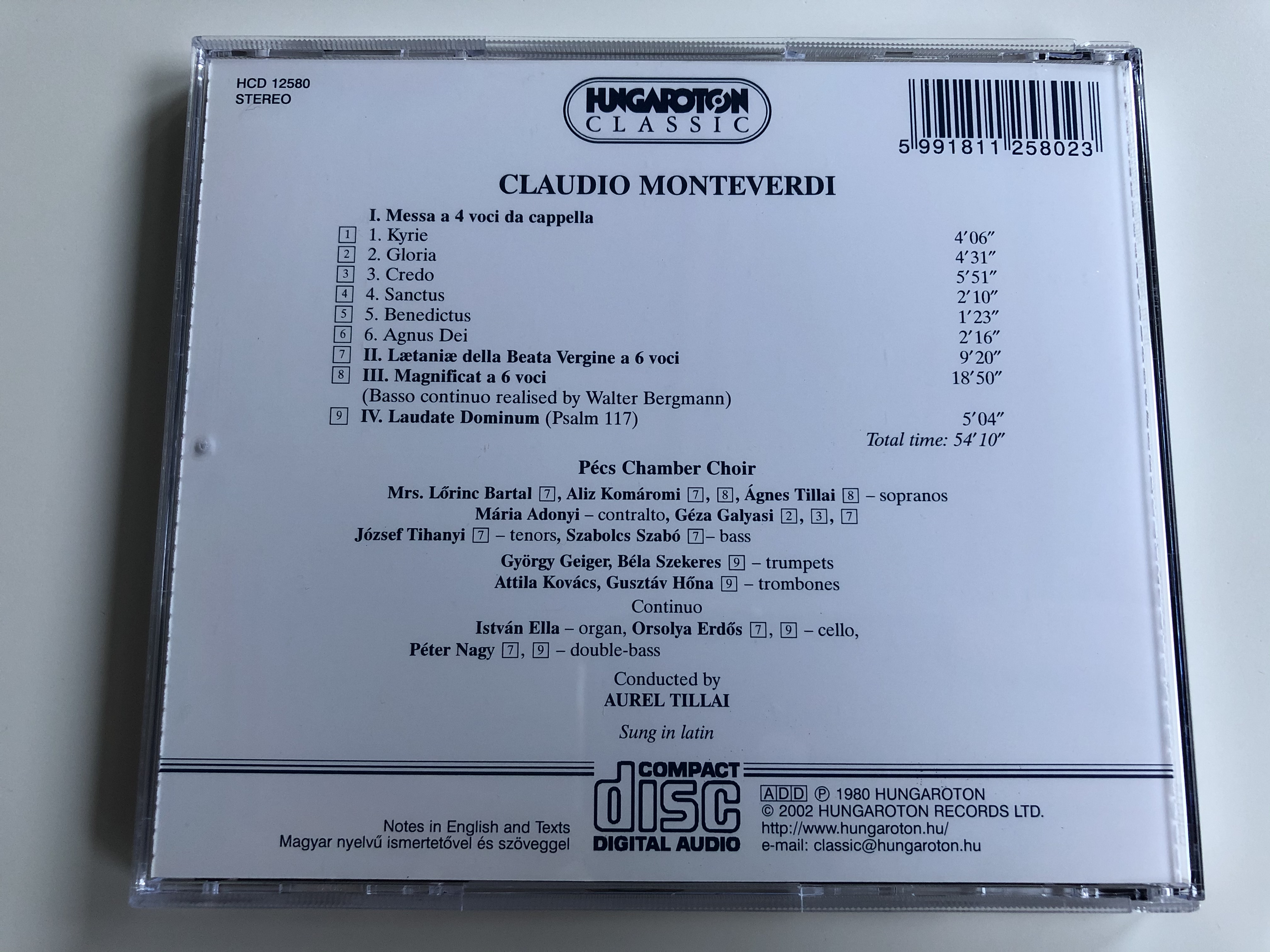Description
Monteverdi - Messa A 4 Voci da cappella, Letanie della Beata Vergine a 6 voci, Magnificat A 6 voci, Laudate Dominum / Pécs Chamber Choir, Aurél Tillai / Hungaroton Classic Audio CD 1980 Stereo / HCD12580
UPC 5991811258023
Sung in Latin
Total Playtime 54:10
℗ 1980 HUNGAROTON RECORDS LTD.
Tracklist:
| I. Messa A 4 Voci Da Capella | (20:27) | |
| 1 | 1. Kyrie | 4:06 |
| 2 | 2. Gloria | 4:31 |
| 3 | 3. Credo | 5:51 |
| 4 | 4. Sanctus | 2:10 |
| 5 | 5. Benedictus | 1:23 |
| 6 | 6. Agnus Dei | 2:16 |
| 7 | II. laetaniae Della Beata Vergine A 6 Voci |
9:20 |
| 8 | III. Magnificat A 6 Voci | 18:50 |
| 9 |
IV. Laudate Dominum (Psalm 117) | 5:04 |
- Cello – Orsolya Erdős (tracks: B2)
- Choir – Chamber Choir Of Pécs
- Composed By – Claudio Monteverdi
- Conductor – Aurél Tillai
- Double Bass – Nagy Péter (tracks: B2)
- Organ – István Ella
- Soprano Vocals – Aliz Komáromi (tracks: B1), Ágnes Tillai (tracks: B1)
- Trombone – Gusztáv Hőna (tracks: B2), Kovács Attila (6) (tracks: B2)
- Trumpet – Béla Szekeres (tracks: B2), György Geiger (tracks: B2)
Die von Claudio Monteverdi komponierte Messa a quattro voci da Cappella wurde 1650 postum in einer Sammlung geistlicher Musik veröffentlicht. Das genaue Kompositionsdatum ist nicht bekannt. Es ist möglich, dass die Messe anlässlich einer Weihnachtsmesse in San Marco in Venedig entstand, da Monteverdi während seiner Anstellung in Venedig jährlich eine Messe für Heiligabend zu komponieren hatte. Allerdings sind aus Monteverdis Jahren in Venedig lediglich zwei Messen überliefert: diese und die in der Sammlung Selva morale e spirituale von 1641 enthaltene Messa a 4 da Cappella.
Claudio Giovanni Antonio Monteverdi; baptized 15 May 1567 – 29 November 1643) was an Italian composer, string player, choirmaster, and priest. A composer of both secular and sacred music, and a pioneer in the development of opera, he is considered a crucial transitional figure between the Renaissance and Baroque periods of music history.
Born in Cremona, where he undertook his first musical studies and compositions, Monteverdi developed his career first at the court of Mantua (c. 1590–1613) and then until his death in the Republic of Venice where he was maestro di cappella at the basilica of San Marco. His surviving letters give insight into the life of a professional musician in Italy of the period, including problems of income, patronage and politics.
Much of Monteverdi's output, including many stage works, has been lost. His surviving music includes nine books of madrigals, large-scale religious works, such as his Vespro della Beata Vergine (Vespers for the Blessed Virgin) of 1610, and three complete operas. His opera L'Orfeo (1607) is the earliest of the genre still widely performed; towards the end of his life he wrote works for Venice, including Il ritorno d'Ulisse in patria and L'incoronazione di Poppea.
While he worked extensively in the tradition of earlier Renaissance polyphony, as evidenced in his madrigals, he undertook great developments in form and melody, and began to employ the basso continuo technique, distinctive of the Baroque. No stranger to controversy, he defended his sometimes novel techniques as elements of a seconda pratica, contrasting with the more orthodox earlier style which he termed the prima pratica. Largely forgotten during the eighteenth and much of the nineteenth centuries, his works enjoyed a rediscovery around the beginning of the twentieth century. He is now established both as a significant influence in European musical history and as a composer whose works are regularly performed and recorded.












































